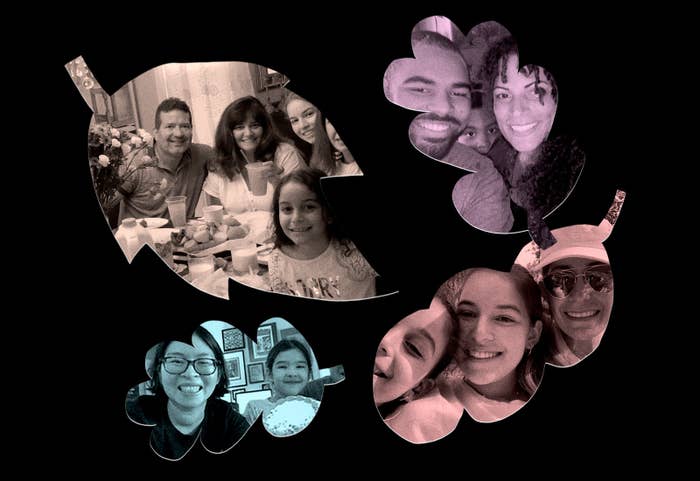
BuzzFeed News has reporters around the world bringing you trustworthy stories about the impact of the coronavirus. To help keep this news free, become a member.
This holiday season will be unlike any other for the Fowlers. After their patriarch, David Fowler, and his son Gary died from the coronavirus in April, and with several family members still struggling with the long-term effects of COVID-19, the family has been feeling the furthest thing from festive.
“We want to get together, but it just feels like — I don’t know, it’s just rough,” Keith Gambrell, Gary’s son, told BuzzFeed News. “Every day, coronavirus is in our faces. Every day we relive losing our dad and grandfather. There’s just no mood for any type of celebratory tradition.”
Through Thanksgiving and the winter holidays, the families of more than 258,000 people who have died from COVID-19 will be feeling the loss of their loved one all the more acutely. Some will be confronting an empty seat at the dining table, and some will feel the unmistakable void left by a brother, mom, or daughter during a holiday hangout over Zoom.
As coronavirus cases continue to surge throughout the country, with the US hitting grim records of hospitalizations and deaths, some families are choosing to simply forgo the festivities, unable to reckon with a celebration while deep in their grief and anger over people defying public health officials’ safety recommendations, and the Trump administration’s failed response to the pandemic.
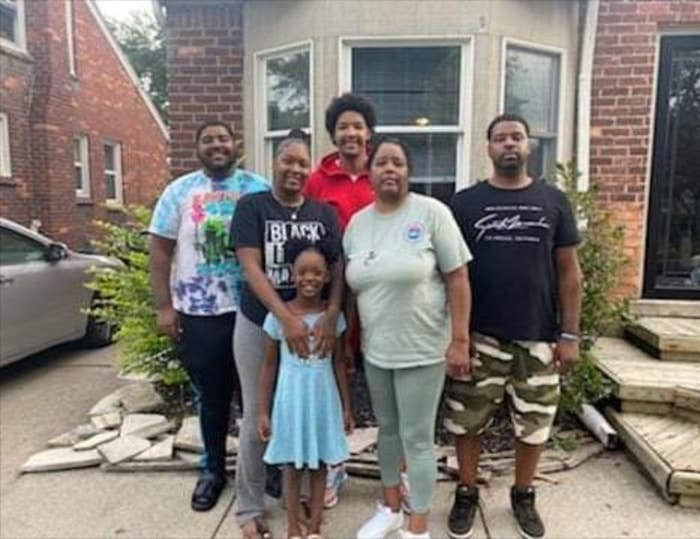
Thanksgiving with the Fowlers usually began with Gary getting up at 4 a.m. to cook a turkey, make gravy, and prepare dessert while playing Christmas music. Then in the afternoon, Gambrell and his siblings would gather at their parents’ house or their maternal grandmother’s house.
But nothing has been the same since their dad and grandfather died seven months ago, just hours apart during the first, brutal wave of the pandemic. Gambrell, two of his brothers, and his mom also contracted the virus. With a third surge of the virus now sweeping the nation — including in Michigan, where they live — Gambrell said they have been forced to confront their wrenching loss over and over.
“Anytime you lose anyone important, it’s going to change that first holiday or the first birthday. We lost two people back-to-back, so there’s no type of enjoyable moments right now,” Gambrell said about his family. “Maybe next year will be better, but right now it’s just too fresh. … I still cry every day about it.”
Marya Patrice Sherron, whose brother, Kious Kelly, a New York City nurse, died of COVID-19, has been trying not to think about the holidays, especially Christmas.
The months since Kelly’s death in March have been extremely difficult for her. Sherron, who lives with her husband and two kids in Indianapolis, was in a particularly bad spot this summer as the graphic images of Black people being killed by police or white neighborhood vigilantes sparked a national reckoning over police violence and systemic racism against Black people.
“We’re a Black family. I’ve lost my brother, and I’ve got two Black sons, a Black husband, and a Black dad. I was scared for anyone to leave the house,” she said. “I’m like, you’re either going to get coronavirus and die, or you’re gonna get shot by the police and killed. It was too much, the combination of those two.”
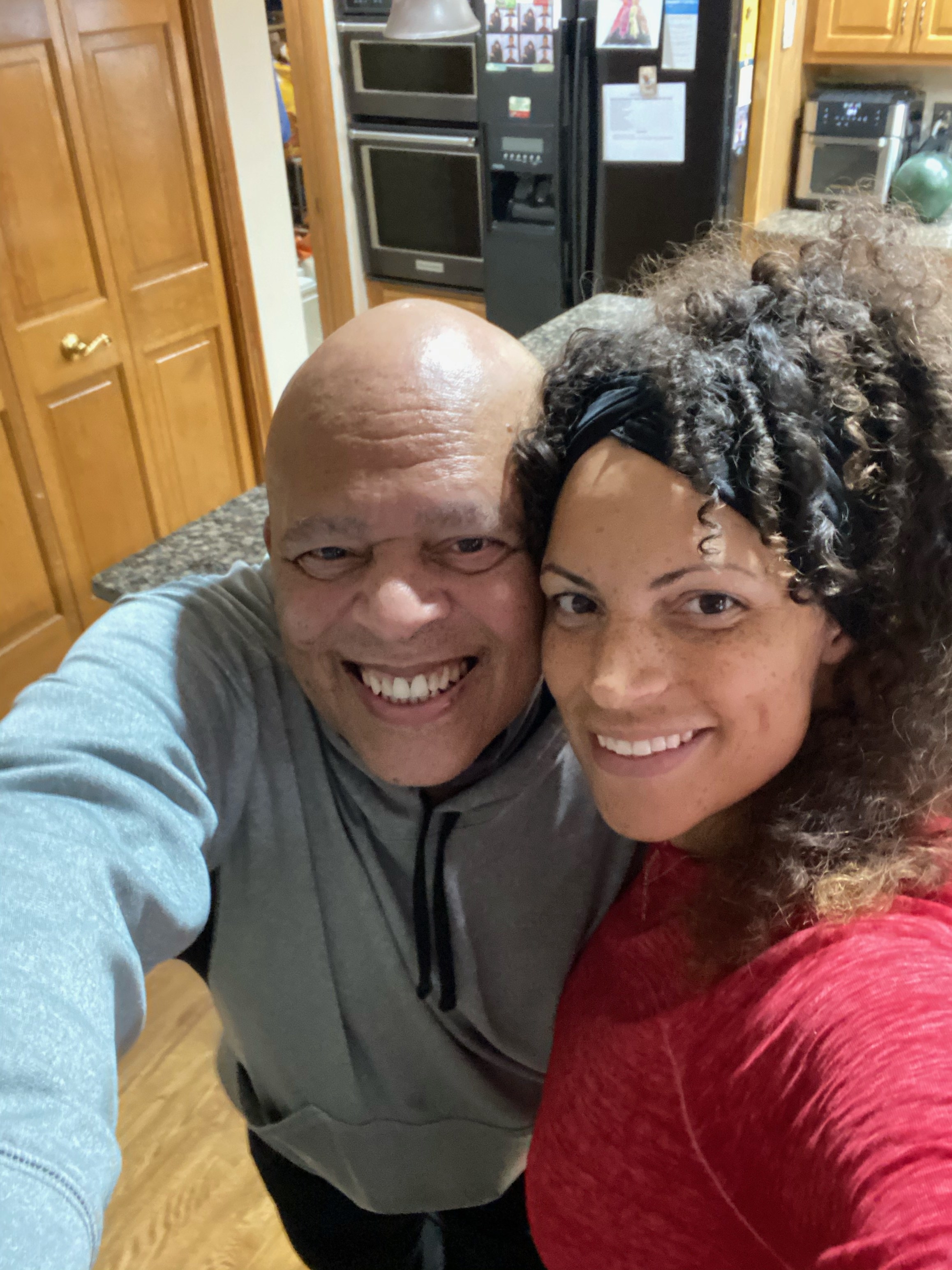
Eight months later, Sherron’s grief over her brother’s death is still very raw, so she got off Facebook, stopped watching the news, and has been trying to focus on her family.
“I tried to pull away and I don’t know if that’s good, if that’s denial, if that’s cowardly, but I’ve had to take care of myself and my mind and my heart. And anything that’s left over is for my kids and my husband and my parents,” she said, adding that she has found it hard to move on.
“I don’t know how people do that. I don’t know how people go on,” she said
Christmas in 2019 was the last holiday her family spent with Kelly. His busy work schedule meant that he often missed family gatherings, but he surprised them then by unexpectedly showing up at their parents’ home in Michigan.
They didn’t do anything particularly exciting, but for Sherron, it was precious time spent with her only sibling. They ate, played video games, watched movies, and opened presents on Christmas morning.
Sherron said the memory of her brother being with them during Christmas week is still so vivid.
“I would like to go to sleep and wake up when Christmas is over,” she said. “It’s going to be very hard.”
After Kelly died in March, when a drastic shortage of personal protective equipment (PPE) plagued hospitals in hot spots like New York City, Sherron became a vocal advocate for protective gear for healthcare workers, believing that Kelly would have been less likely to contract the virus if he had proper PPE.
She continued to speak up about the importance of safety measures, but Sherron said she has exhausted her energy trying to convince people that they should social-distance and wear masks.
“I’m done trying to help,” she said. “They will not change their perspective, and so there’s nothing else that you can say or do.”
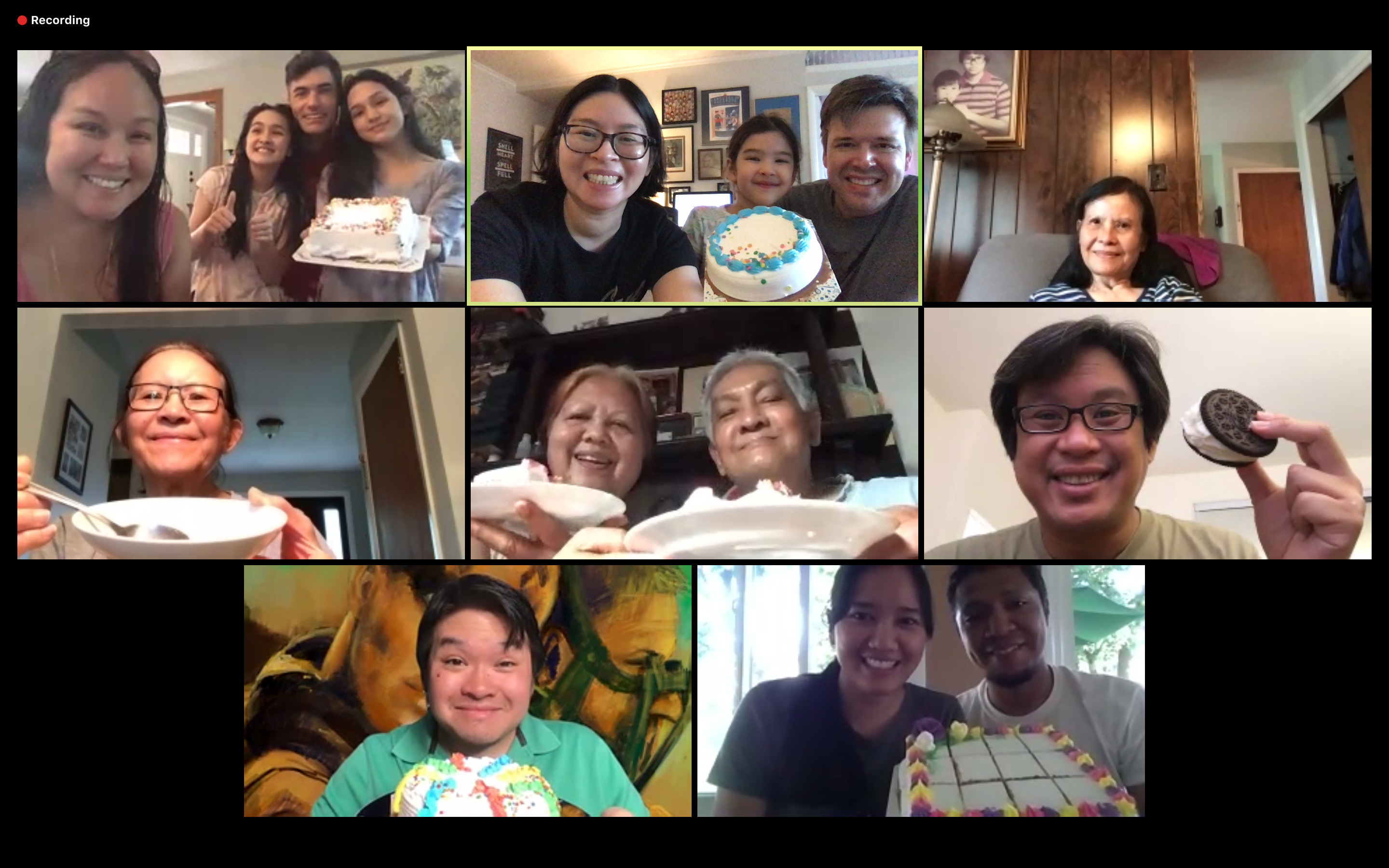
Several of the families who spoke to BuzzFeed News shared Sherron’s anger over people flouting safety measures to slow the spread of the virus. Many of them said they are opting for small or virtual holiday celebrations precisely because they know the pain of losing someone to COVID-19.
For Risa Harms, whose cousin Anick Jesdanun — a prolific marathon runner and Associated Press journalist — died in April after contracting the coronavirus, her family’s grief has come in waves.
For the holidays this year, they want to make sure that they’re there for each other.
“We just want to make sure that none of us, even though we might be physically alone in our home, that nobody is actually entirely alone,” Harms said. “We have good days and bad days, so it’s hard to predict on Thanksgiving if that’s a good day or bad day. But it will be better if we’re at least able to check in with one another.”
Harms and her extended family are planning to spend time together over Zoom. For them, having an in-person gathering was out of the question — not because they don’t want to, but because Jesdanun’s death has made them even more conscious about the risks involved.
“I miss my family so much. But am I willing to put my family member at risk, or am I willing to make things potentially harder on those who are already on the front line? For me, that’s not really a choice I would be comfortable making at this time,” she said. “I understand that other people might not be weighing that same risk that my family has had to weigh. ... I don’t want you to have that experience.”
Last week, CDC officials strongly advised against traveling for Thanksgiving, citing an explosive increase in COVID-19 cases nationwide. Despite the CDC’s recommendation, which came just days before the holiday, videos and photos from over the weekend showed that people were still forging ahead with their Thanksgiving travel plans.
Sixteen-year-old Kimberly Vega, whose father Jesus Vega died in April, said she gets angry when she sees people defying public health recommendations in order to have a “normal” Thanksgiving.
“It would be different if something had happened to them,” Kimberly said. “It’s just like, people don’t care anymore as much as they did in April. It makes sense. I’m even tired of wearing a mask, but I still wear it. The people who don’t care probably haven’t been affected by it like I have.”
“It really frustrates me that people don't understand that,” she said. “It’s not going to be the end of the world if you don’t have the party.”
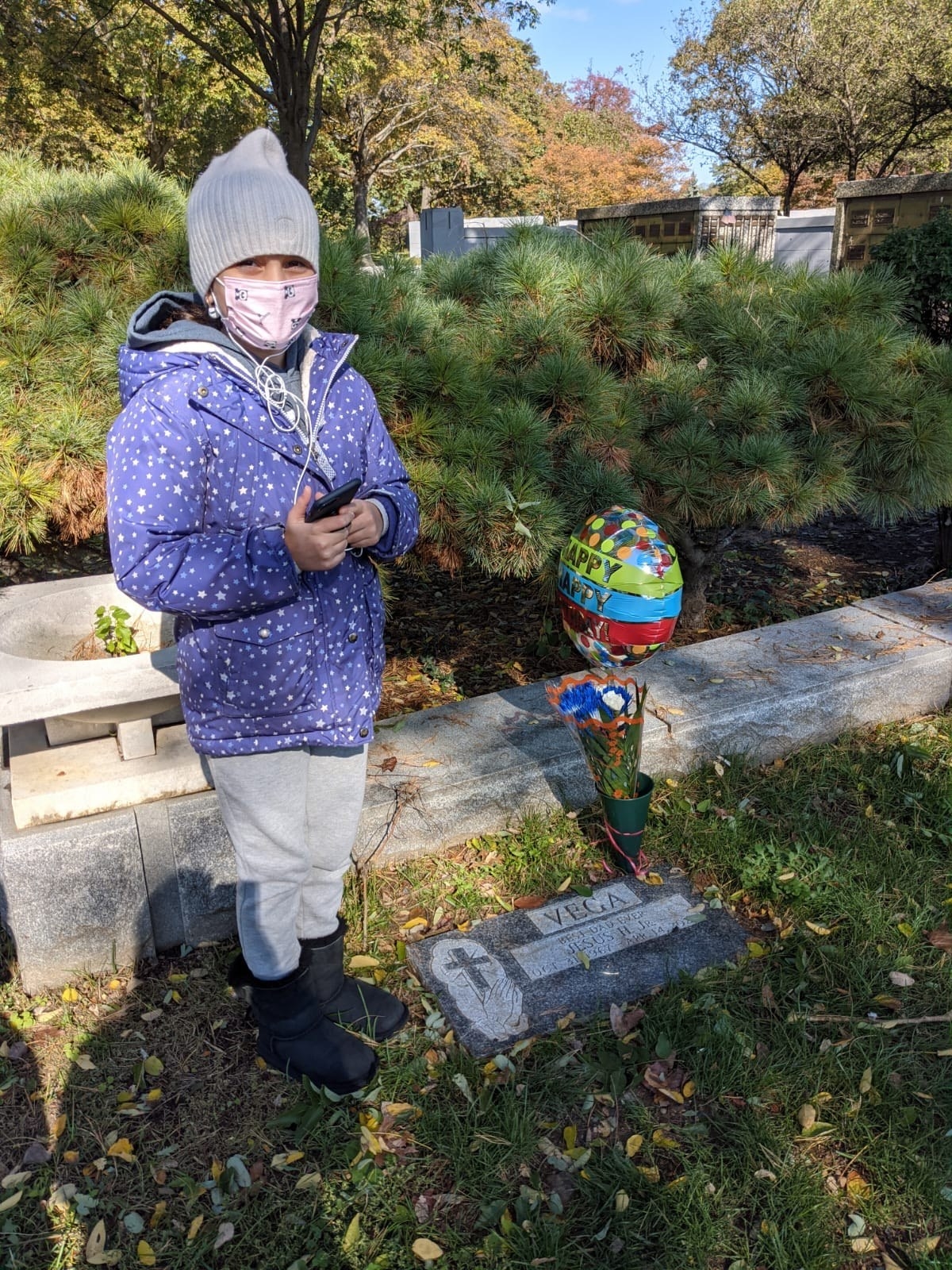
Since her dad died, Kimberly, her mother, and her younger sister moved out of their Queens apartment in New York City and relocated to Long Island.
“It’s been a big adjustment,” she said. “We’re not in the same place that we were before. We lived in that apartment since I was born, and we have a lot of memories there. Us moving has helped me move on from everything that happened.”
For the Vega family, Thanksgiving was always a big food holiday.
“There was so much food. You’d be full all day,” said Kimberly. Her uncle, whom she called the “Gordon Ramsey of the family,” would cook two turkeys and mashed potatoes as well as some Spanish food like arepas and empanadas.
“It wasn’t classic Thanksgiving,” she said. “It was a yummy, gourmet Latin dinner.”
Kimberly said her dad would regularly overeat then fall asleep on the sofa — even though he would insist he was just closing his eyes, Kimberly said. “But then you’d hear him snoring.”
This year, the Vega family is opting for a small family get-together. Kimberly, her mom, and her sister will join her aunt at her house for lunch.
To honor her father, Kimberly said her aunt — his sister — created personalized photo albums of him and gave every family member a copy.
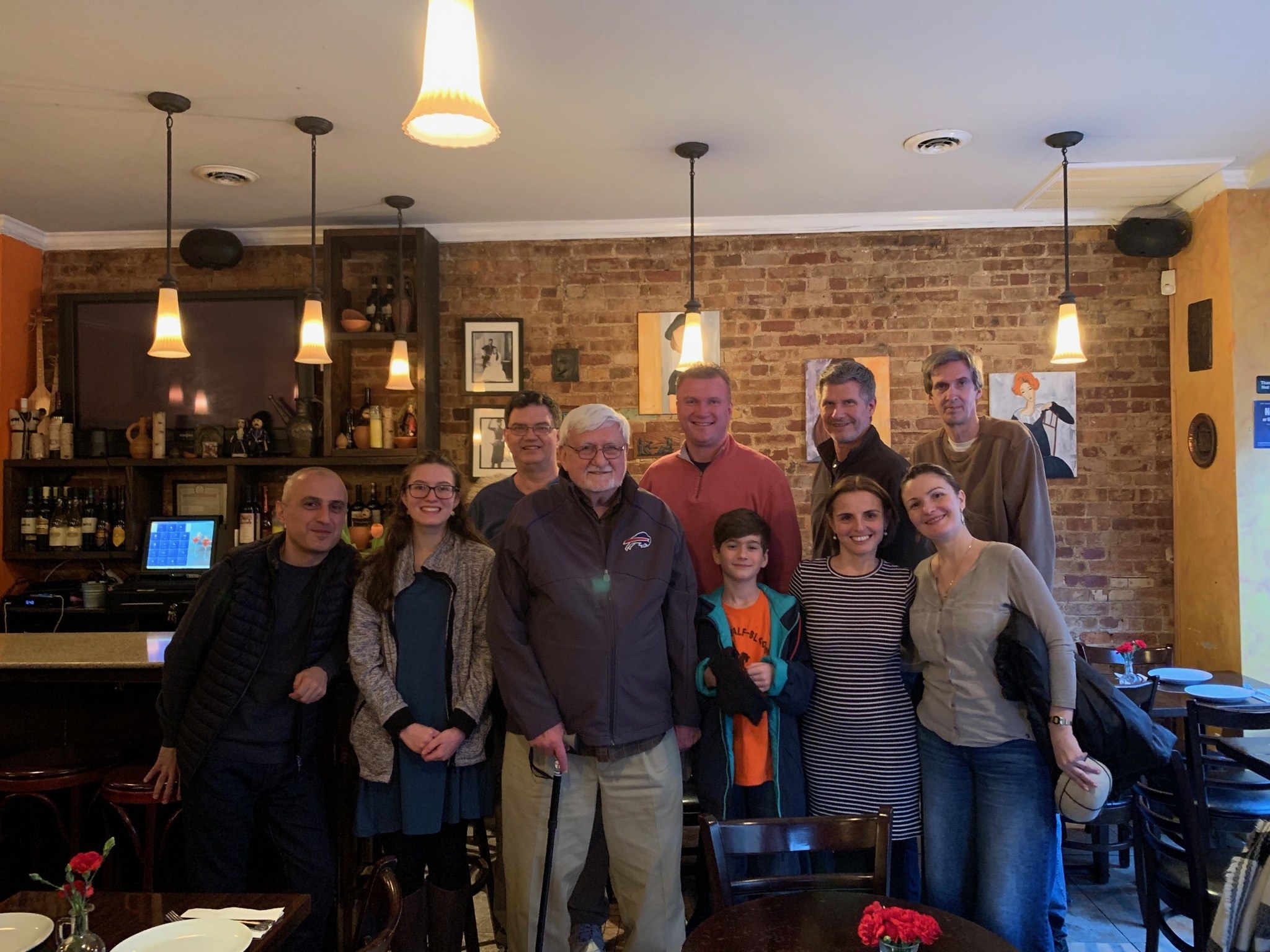
With Thanksgiving just days away and Christmas about a month out, John Pijanowski is feeling the absence of his father, Donald Pijanowski. Donald died in April after contracting the virus in Buffalo, New York.
“It was always the case that Easter and Thanksgiving at my dad’s house in Buffalo were carved in stone,” John, who lives in Arkansas, told BuzzFeed News. “I always take a whole week and pull my son out of school, and we’d always go up just the two of us at first, to spend the whole week with my dad.”
Donald had saved John’s old toys, so Jack, John’s 11-year-old son, always had something to play with: his Dungeons & Dragons box, his Apple II computer, his old Nintendo that still works. The three of them would sit around, playing the games and reminiscing, giving Jack a glimpse into the life his dad had as a kid.
John said the fact they would never be going back to the Buffalo house recently hit Jack for the first time.
“He turned to me and said, ‘You don’t have a home anymore,’” John said, “And I was like, Great, I wasn’t planning on crying today, kid, but thanks.”
Donald’s house in Buffalo was the hub for the Pijanowski family, John said. It was where the family was guaranteed to see each other, and it was filled with memories from childhood and past holidays.
“But all of a sudden the words of my own parents started coming out of my mouth, and I said, ‘You can’t allow yourself to get attached to things, the things don’t matter. What matters are people,’” John said he told his son. “Your family, your really close friends, that’s your home. It’s not wood; it’s not brick. All that you can lose.”
This year, the Pijanowskis are creating new traditions to make the quarantine holidays more fun.
For Halloween, John spent weeks ordering candy from all over the world and hid them in particularly hard-to-find places, creating a scavenger hunt for Jack. For Christmas, they’re considering a Hawaii theme, with leis and Hawaiian food and music, and maybe even sand on the floor.
“One of the main things that has been stripped from people’s lives right now is ritual, whether it’s holidays, or funeral ritual, or the general mourning and the physical face-to-face support you would get normally. So these holidays are gonna hit people really really hard,” John said, adding that you can make a brand-new ritual at any time, and it can be just as satisfying and comforting.
“That’s what we’re doing,” he continued. “We’re making these new rituals and they might become traditions, or they might just be what got us through 2020.”


